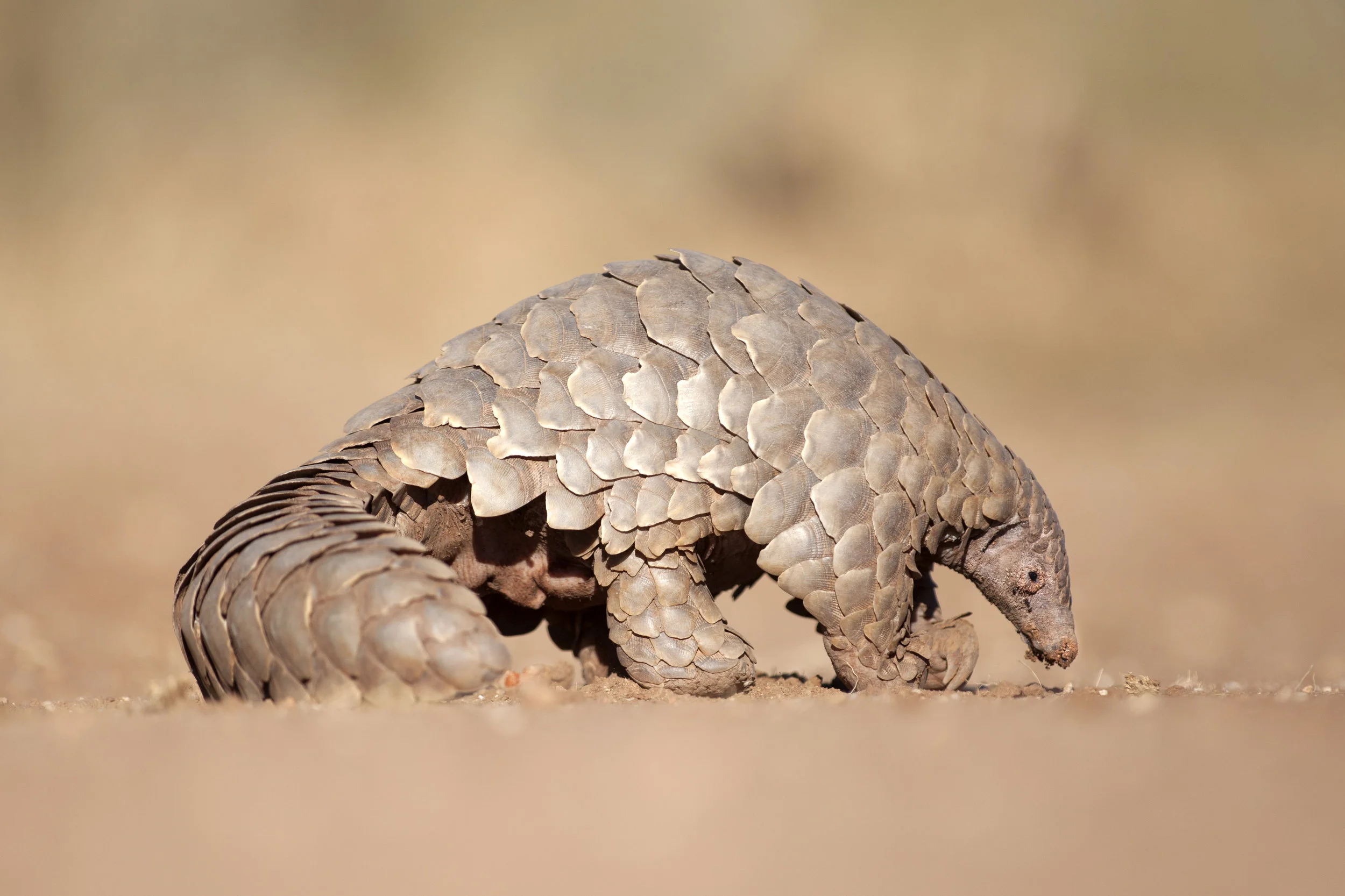Animals & the Environment: The Pangolin in Peril
by Kacey Barton
When you think of the illegal wildlife trade that's happening around the world, it's a good bet that you think of elephant tusks and tiger skins; a small animal resembling an anteater with armor probably wouldn't be the first thing that comes to mind.
Pangolins, also called scaly anteaters, are the world's most trafficked mammal, hunted and valued for their scales and meat. The population of pangolins is unknown, and with their slow reproduction rate (one pangopup per year), their future hangs in the balance of international efforts to stop the poaching and trading of these unique animals. The International Union for the Conservation of Nature lists two species of pangolin as Critically Endangered, two as Endangered, and six as Vulnerable.
There have been measures taken to combat the trafficking and poaching of pangolins; the IUCN SSC Pangolin Specialist Group has a conservation program for pangolins called Scaling up Pangolin Conservation. The group is comprised of around 100 voluntary members, each of whom are dedicated to learning more about pangolins and contributing to their conservation efforts. The most recent occurred in September 2016; the Convention on International Trade in Endangered Species of Wild Fauna and Flora (CITES) banned all commercial trade of all the eight species of pangolin.
While these efforts will ensure that improvements are made in the protection in trade of pangolins, it won't definitively stop the illegal poaching and trade indefinitely. The only way to halt these illegal activities that are so detrimental not only to the pangolin, but also other endangered animals, is to put an end to the demand for their coats, meat, and other parts. With the younger generations across the globe learning about the suffering that these animals are experiencing, all for the sake of decorations and faux medicine, they too are beginning to advocate for the end of these barbaric practices.
With the declining populations in animals we are seeing today, it's more important than ever to educate yourself and others on what can be done to prevent more animals from disappearing completely. Spread the word about the wildlife trade, what the negative affects of it are and what others can do to help. Donate your time or money to organizations that have made it their mission to end illegal wildlife activities, such as the World Wildlife Fund, African Wildlife Foundation, or the International Union for the Conservation of Nature. With a joined effort to end this endless circle of suffering for animals, we can make a difference, and save the future for so many different species.


